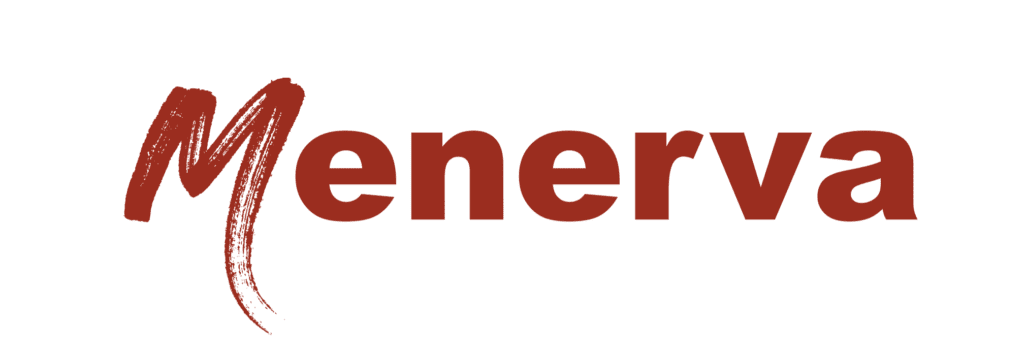Content marketing is a pivotal strategy in the digital world that helps businesses connect with their audiences on a deeper level. Unlike traditional marketing methods that typically focus on direct sales pitches, content marketing creates a narrative that engages customers through relevant and valuable content. But what exactly does it entail, and how can it transform your business? Let’s dive in.
Definition
At the heart of content marketing is providing valuable, relevant, and consistent content to attract and retain a clearly defined audience—ultimately, to drive profitable customer action. Instead of focusing on what you’re selling, you provide content that speaks to solving your audience’s problems in a way that is relevant and practical.
Objectives of Content Marketing
Content marketing serves several key objectives:
- Building Brand Awareness: By sharing content that resonates with your audience, you increase your brand’s visibility and recognition.
- Generating Leads and Sales: Compelling content has the power to drive users to take action, be it signing up for more information or making a purchase.
- Improving Engagement and Customer Loyalty: Engaging content can create positive interactions with customers, keeping them coming back for more.
Why Content Marketing is Important
When you think about it, your audience is seeking answers to their questions, right? So, you can use content marketing to answer those questions and while you’re doing that, you’re building trust and credibility, developing relationships, enhancing conversions, and generating leads. In today’s age, customers expect high-quality, consistent content from their favorite companies.
Benefits of Content Marketing:
- Increased visibility in search engines
- Higher domain authority
- More referral and social traffic
- Improved conversion potential
- Enhanced brand reputation
- Stronger customer relationships through sustained engagement
How Content Marketing Works
Content marketing supports business objectives in a structured way:
- Awareness: Attract attention through informative and relevant content.
- Consideration: Engage them with the content that matches their needs and interests.
- Closing: Convert potential customers into actual customers with content that moves them to action.
Key Components of Content Marketing
Strategy: Before creating content, devise a strategy that includes what you want to achieve and defines your audience and what’s important to them.
Content Creation: This is the process of producing engaging, relevant content. Whether it’s blog posts, videos, podcasts, or infographics, the content should be designed to meet the needs of your audience.
Distribution: Once the content is created, it must be shared. This could be through social media, email marketing, SEO, or even pay-per-click advertising.
Measurement: Finally, the success of content marketing must be measured. This could be through analytics tools that track engagement, conversion rates, and overall performance.
Types of Content Marketing
There are many different types of content that can be leveraged:
- Blog Posts and Articles: foundational for SEO and driving organic traffic.
- Social Media Content: enhances engagement and brand visibility.
- Emails and Newsletters: keep your audience informed and engaged with regular updates.
- EBooks and White Papers: offer depth in topics, great for lead generation.
- Videos and Podcasts: make your brand personable and easy to share.
- Infographics: simplify complex data into digestible visuals.
How to Get Started
- Set Clear Objectives: What do you want your content marketing to achieve?
- Understand Your Audience: Create personas to target your content accurately.
- Content Audit: Assess current content to identify gaps and opportunities. This can be done through extensive keyword research and competitor analysis.
- Choose the Right Formats: Decide the content types of content that align with your goals. Where does your audience spend most of their time?
- Create a Content Calendar: Plan your content production and publishing schedule.
- Production and Distribution: Develop and distribute your content.
- Measure and Optimize: Use analytics to measure performance and optimize future content.
Identifying Content Opportunities: Research and Activities
A sound content marketing strategy starts with a strong foundation of research and idea generation. Here are key activities that can help uncover content opportunities, identify content gaps, and ensure that your content resonates with your audience while supporting your SEO goals:
- Keyword Research: Content idea generation grows out of keyword research. Tools like Google Keyword Planner, Ahrefs, or SEMrush can help you discover what potential customers are searching for and the language they use. Look for high-volume keywords with low competition that align with your brand’s offerings.
- SERP Analysis: Examining the Search Engine Results Pages (SERPs) for your targeted keywords provides insights into what content is currently ranking and why. Analyze the top results for common themes, formats, and gaps to understand what Google considers relevant and valuable for those queries.
- Competitor Content Analysis: Review your competitors’ websites and identify what content works for them. Analyze their top-performing posts, the frequency of their content updates, and any unique angles they might be exploiting. This analysis can reveal gaps in their strategies that you can capitalize on.
- Audience Needs and Pain Points: Engaging directly with your audience through surveys, social media interactions, and feedback forms can unveil their needs, challenges, and questions. This first-hand information is invaluable for creating content that truly resonates.
- Content Audits: Conducting a content audit of your existing materials can reveal what types of content have performed well in the past and which haven’t. You can then understand what to replicate and what to improve. Additionally, this process can uncover content gaps—topics that are underrepresented on your site but have the potential to attract and engage your audience.
- Trend Analysis: Utilize tools like Google Trends or BuzzSumo to keep a pulse on what topics are currently trending in your industry. Creating timely and relevant content can position your brand as a thought leader and attract more organic traffic.
By integrating these activities into your content strategy, you will create well-crafted content that is strategically positioned to enhance your SEO efforts and meet your audience’s needs.
Challenges in Content Marketing
Navigating content saturation and managing budget constraints are common challenges in content marketing. Moreover, the competitive landscape, especially on platforms like Google, adds another layer of complexity. Here are some specific challenges and strategies to address them:
- Content Saturation: With millions of blog posts, videos, and social media updates published daily, how can you stand out in a crowded digital world? Produce unique, high-quality content that delivers clear value and is tailored to your audience’s needs.
- Competing in Google: Google’s algorithms favor content that demonstrates expertise, authority, and trustworthiness. To compete effectively:
- Focus on SEO Best Practices: Use keywords appropriately, ensure mobile-friendliness, improve page speeds, and secure your site with HTTPS.
- Create Comprehensive Content: Develop content that thoroughly answers user questions and covers topics more extensively than your competitors.
- Build Quality Backlinks: Earn backlinks from reputable sites to improve your domain authority and your rankings. These will likely come naturally with high-quality blog content.
- Budget Constraints: Many organizations struggle to allocate sufficient resources for content creation and promotion. It’s important to prioritize activities based on potential ROI and consider cost-effective methods like repurposing existing content or leveraging user-generated content.
- Adapting to Algorithm Changes: Google frequently updates its search algorithms, which can shift what content ranks well. Staying current with SEO trends and adjusting your strategies accordingly is critical to successfully pivot with algorithm changes.
Businesses that understand and address these challenges can better position their content marketing efforts to succeed in a competitive and ever-evolving digital landscape.
Content Marketing and SEO
SEO is critical to content marketing that delivers results. Optimizing content for search engines increases your content’s visibility and likelihood that it will reach your target audience. These efforts include using the right keywords, creating quality content, and consistently building online authority.
Best Practices for Effective Content Marketing
- Consistency: Regularly produce and share high-quality content.
- Engagement: Interact with your audience, respond to their queries, and foster community.
- Analytics: Leverage data to improve content and strategies.
Case Studies: Demonstrating Real-World Impact
Our approach to content marketing and SEO is not just about strategies and theories—it’s about tangible results. The following case studies showcase the significant improvements we’ve achieved for our clients through dedicated partnerships and expert implementation. From enhancing global SEO presence to boosting organic traffic and visibility, these stories exemplify how Menerva Digital’s tailored solutions can meet the unique challenges and goals of diverse businesses. Let’s explore these success stories to understand the tangible benefits our services can offer.
- Blurb, a leading self-publishing platform, partnered with Menerva Digital to boost its blog visibility and organic traffic. Their integrated strategy of content optimization and SEO enhancements led to an 88% increase in organic traffic and a 50% rise in top-three keyword rankings. This success culminated in Blurb being recognized as a finalist at the U.S. Search Awards.
- Proofpoint, a top enterprise cybersecurity firm, has partnered with Menerva Digital since 2018 to bolster its global presence and increase organic traffic. This collaboration to enhance their content marketing and SEO tactics resulted in a 139% rise in global organic traffic and a 66% increase in their organic sales pipeline. Their significant achievements in SEO and content marketing were recognized with awards from both the Search Engine Land Awards and the U.S. Search Awards.
Content marketing is an invaluable tool in your marketing arsenal. By creating high-quality, relevant content, you can engage your audience, build deeper customer relationships, and drive meaningful business results.
How We Can Help
Ready to craft a winning content marketing strategy? Our experience with numerous clients across various industries demonstrates the powerful impact of strategic content marketing combined with expert SEO. At Menerva Digital, we offer a range of enterprise SEO services designed to fill content gaps, provide detailed content suggestions and briefs, and deliver compelling copywriting that engages and converts. We’re committed to elevating your brand’s digital presence, increasing organic traffic, and expanding your sales pipeline. With Menerva Digital, you gain a partner dedicated to crafting tailored strategies that drive significant business growth. Contact us today to discover how our award-winning services can create a success story for your business.





